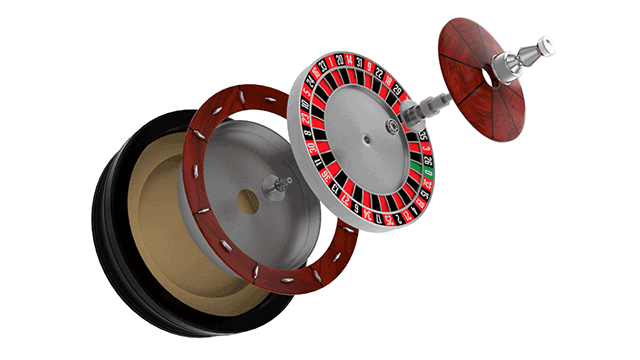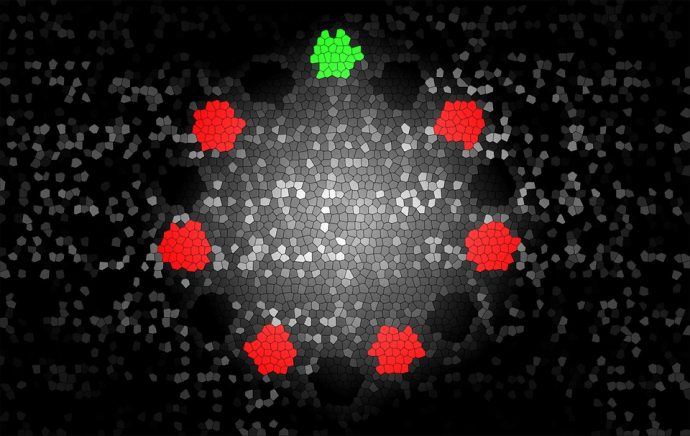Roulette Machine Pascal

- Roulette Machine Pascals
- Roulette Machine Pascal Games
- Roulette Machine Pascal Play
- Roulette Machine Pascal Download
One of these curious people was the French physicist Blaise Pascal who is sometimes given the moniker of “Father of Roulette”. This remarkable man wanted to create something incredible. A strangely named perpetual motion machine! So what, you may ask, it this tricky sounding object? Any fan of roulette should know the name of Blaise Pascal, but unfortunately, that is not the case. Sure, it is partly to do with the fact that he made so many other great contributions in his field, but this is the one that many people have profited — both literally and figuratively — from in the most identifiable and understandable way.
- The 2017 game Nier: Automata has multiple characters named after famous philosophers; one of these is a sentient pacifistic machine named Pascal, who serves as a major supporting character. Pascal creates a village for machines to live peacefully with the androids they're at war with and acts as a parental figure for other machines trying to adapt to their newly-found individuality.
- FACT: Pascal invented an early version of Roulette in his search for a perpetual motion machine. Years later Einstein is said to have remarked (but likely didn’t), “the only way to win at Roulette is to take the dealer’s money while they aren’t looking”.
Our editors will review what you’ve submitted and determine whether to revise the article.
Join Britannica's Publishing Partner Program and our community of experts to gain a global audience for your work!
Blaise Pascal, (born June 19, 1623, Clermont-Ferrand, France—died August 19, 1662, Paris), French mathematician, physicist, religious philosopher, and master of prose. He laid the foundation for the modern theory of probabilities, formulated what came to be known as Pascal’s principle of pressure, and propagated a religious doctrine that taught the experience of God through the heart rather than through reason. The establishment of his principle of intuitionism had an impact on such later philosophers as Jean-Jacques Rousseau and Henri Bergson and also on the Existentialists.
When was Blaise Pascal born?
French philosopher and scientist Blaise Pascal was born on June 19, 1623, in Clermont-Ferrand, France.
What was Blaise Pascal known for?
Blaise Pascal laid the foundation for the modern theory of probabilities, formulated what came to be known as Pascal’s principle of pressure, and propagated a religious doctrine that taught the experience of God through the heart rather than through reason.
How did Blaise Pascal die?


Blaise Pascal died after suffering terrible pain, probably from carcinomatous meningitis following a malignant ulcer of the stomach, in 1662.
Pascal’s life to the Port-Royal years
Roulette Machine Pascals
Pascal’s father, Étienne Pascal, was presiding judge of the tax court at Clermont-Ferrand. His mother died in 1626, and in 1631 the family moved to Paris. Étienne, who was respected as a mathematician, devoted himself henceforth to the education of his children. While his sister Jacqueline (born in 1625) figured as an infant prodigy in literary circles, Blaise proved himself no less precocious in mathematics. In 1640 he wrote an essay on conic sections, Essai pour les coniques, based on his study of the now classical work of Girard Desargues on syntheticprojective geometry. The young man’s work, which was highly successful in the world of mathematics, aroused the envy of no less a personage than the great French Rationalist and mathematician René Descartes. Between 1642 and 1644, Pascal conceived and constructed a calculating device, the Pascaline, to help his father—who in 1639 had been appointed intendant (local administrator) at Rouen—in his tax computations. The machine was regarded by Pascal’s contemporaries as his main claim to fame, and with reason, for in a sense it was the first digital calculator since it operated by counting integers. The significance of this contribution explains the youthful pride that appears in his dedication of the machine to the chancellor of France, Pierre Seguier, in 1644.

Until 1646 the Pascal family held strictly Roman Catholic principles, though they often substituted l’honnêteté (“polite respectability”) for inward religion. An illness of his father, however, brought Blaise into contact with a more profound expression of religion, for he met two disciples of the abbé de Saint-Cyran, who, as director of the convent of Port-Royal, had brought the austeremoral and theological conceptions of Jansenism into the life and thought of the convent. Jansenism was a 17th-century form of Augustinianism in the Roman Catholic Church. It repudiatedfree will, accepted predestination, and taught that divine grace, rather than good works, was the key to salvation. The convent at Port-Royal had become the centre for the dissemination of the doctrine. Pascal himself was the first to feel the necessity of entirely turning away from the world to God, and he won his family over to the spiritual life in 1646. His letters indicate that for several years he was his family’s spiritual adviser, but the conflict within himself—between the world and ascetic life—was not yet resolved. Absorbed again in his scientific interests, he tested the theories of Galileo and Evangelista Torricelli (an Italian physicist who discovered the principle of the barometer). To do so, he reproduced and amplified experiments on atmospheric pressure by constructing mercurybarometers and measuring airpressure, both in Paris and on the top of a mountain overlooking Clermont-Ferrand. These tests paved the way for further studies in hydrodynamics and hydrostatics. While experimenting, Pascal invented the syringe and created the hydraulic press, an instrument based upon the principle that became known as Pascal’s principle: pressure applied to a confined liquid is transmitted undiminished through the liquid in all directions regardless of the area to which the pressure is applied. His publications on the problem of the vacuum (1647–48) added to his reputation. When he fell ill from overwork, his doctors advised him to seek distractions; but what has been described as Pascal’s “worldly period” (1651–54) was, in fact, primarily a period of intense scientific work, during which he composed treatises on the equilibrium of liquidsolutions, on the weight and density of air, and on the arithmetic triangle: Traité de l’équilibre des liqueurs et de la pesanteur de la masse de l’air (Eng. trans., The Physical Treatises of Pascal, 1937) and also his Traité du triangle arithmétique. In the last treatise, a fragment of the De Alea Geometriae, he laid the foundations for the calculus of probabilities. By the end of 1653, however, he had begun to feel religious scruples; and the “night of fire,” an intense, perhaps mystical “conversion” that he experienced on November 23, 1654, he believed to be the beginning of a new life. He entered Port-Royal in January 1655, and though he never became one of the solitaires, he thereafter wrote only at their request and never again published in his own name. The two works for which he is chiefly known, Les Provinciales and the Pensées, date from the years of his life spent at Port-Royal.
- born
- June 19, 1623
Clermont-Ferrand, France
- died
- August 19, 1662 (aged 39)
Paris, France
- notable works
- subjects of study
- inventions
The Perpetual Motion Machine- the Birth of Roulette?
Roulette Machine Pascal Games
In the search for the eternal mankind has always reached for the everlasting, trying to solve the unexplained and to mimic the magnificence and downright weirdness of the rules of the world around us. One of these curious people was the French physicist Blaise Pascal who is sometimes given the moniker of “Father of Roulette”.
This remarkable man wanted to create something incredible. A strangely named perpetual motion machine!
So what, you may ask, it this tricky sounding object? To keep it simple, a perpetual motion machine is a device that moves continually without using energy to power it. The image to the left might look like Bauernroulette (or poor man’s roulette), but it is an early stage Perpetual Motion machine!
Now, in France in 1655, all things seemed possible; especially to a scientist of the day who had the same reputation as a mega rock-star of this generation. He is alleged to have been the first person to wear a wrist watch and there’s even an entire computer language named after this brainbox.
Pascale wasn’t satisfied with being a mathematician, philosopher and having a famous mathematical solution named after him (Pascal’s Triangle was named after him and is still studied today!) No, Pascal wanted to try to reach heady new scientific heights by building a perpetual motion machine. Now, many people have built machines to spin balls around a wheel, with some fraudulent creations constructed along the way like the wheel that kicked off the Straperlo Scandal, but Pascale was the first person whose aim was to break the laws of physics.
Modern physics has ruled out the possibility of a perpetual motion machine ever existing, or to get super techy about it, when in 1847 the principals of thermodynamics were enshrined, the possibility of perpetual motion became a physical impossibility.
Essentially, you need some form of energy to power a device, whether it is the energy of you moving that powers your watch (therefore powered by perpetual motion) or the magnetic energy of the earth which keeps the moon rotating!
But Pascale was a tryer and a very successful one at that. In his attempt to solve the mysteries of the universe this clever man managed to devise a prototype for the modern roulette wheel.
Clearly this very religious man did not set out to design the much-loved table game of today. It is a very happy coincidence for roulette lovers that one man’s scientific curiosity gave us the beginnings of the roulette wheel.
While the finished wheel we see and play on today owes a great deal to the designs of other later Frenchmen, two brothers Francois and Louis Blanc who decided a zero would be a good addition to the wheel, changing history in one simple act.
Roulette Machine Pascal Play
And so thanks to Pascale, in a way he did achieve his aim. The perpetual motion machine that he accidentally created is one that does really spin perpetually all around the globe day or night, country to country. Whether it’s the much loved John Huxley roulette wheel, seen in Las Vegas, Macau or Monte Carlo, or the technically alluring online version of the original with bells and whistles immersive game play his achievement is the same. We lovers of roulette owe a debt of gratitude to the scientific powerhouse that was Blaise Pascal and to his accidental contribution to the Queen of all table games.
Roulette Machine Pascal Download
We take our collective hats off to you sir!